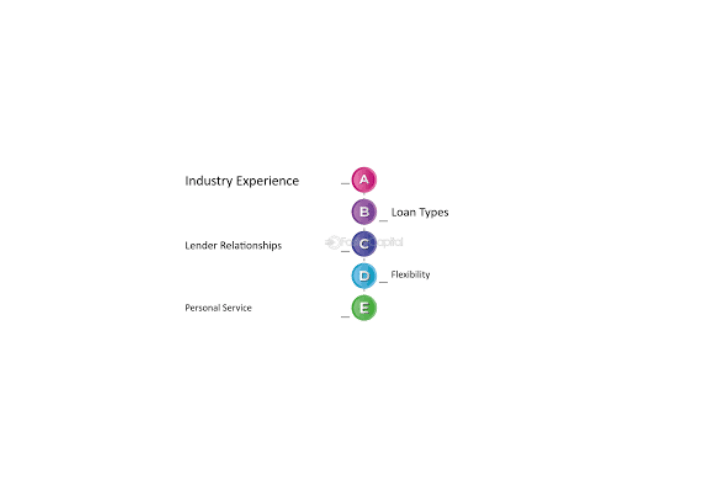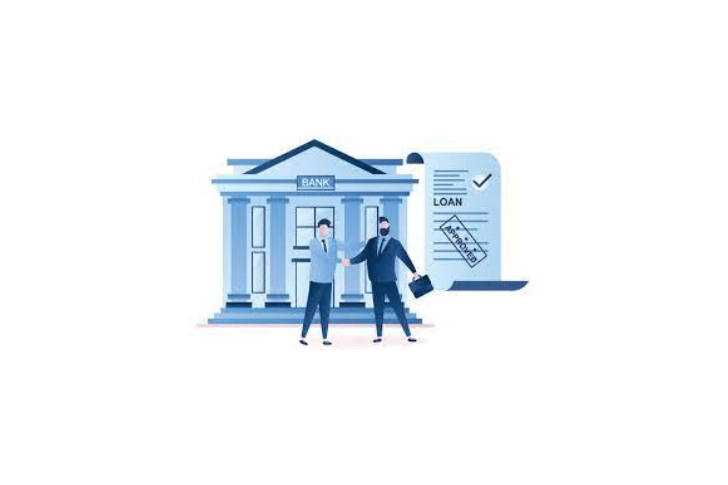1. Understanding Business Loans
Before delving into the specifics of the best business loans for 2023, it’s crucial to have a fundamental understanding of what business loans are and how they work.
What are Business Loans?
Business loans are financial instruments provided by various lending institutions to help businesses obtain the capital they need for various purposes. These purposes may include launching a new business, expanding an existing one, covering operational costs, purchasing equipment, managing cash flow, or responding to unexpected financial challenges.
Types of Business Loans
There are various types of business loans, each designed to address specific business needs. The choice of loan type depends on factors such as the business’s size, industry, financial stability, and the intended use of funds. Some common types of business loans include:
- SBA Loans
- Business Lines of Credit
- Equipment Financing
- Invoice Factoring
- Term Loans
- Business Credit Cards
- Microloans
- Merchant Cash Advances
In this article, we will explore each of these loan types in detail, highlighting their features and when they are most suitable for your business.
2. Criteria for Choosing the Right Business Loan

Before you start looking for a business loan, it’s essential to determine your specific financial needs and assess your eligibility. Here are some criteria to consider when choosing the right business loan:
a. Purpose
What do you need the loan for? Different types of business loans cater to different purposes, so it’s crucial to have a clear understanding of how you plan to use the funds. Common purposes include startup capital, expansion, working capital, equipment purchase, and debt consolidation.
b. Eligibility
Lenders have specific eligibility criteria, and it’s vital to know if you meet these requirements. Common eligibility factors include credit score, time in business, annual revenue, and industry type.
c. Loan Amount
Determine how much capital you need to achieve your business goals. Be realistic about this figure and only borrow what you can comfortably repay.
d. Repayment Terms
Consider the length of the loan term and the frequency of repayments. Longer terms may have lower monthly payments, but you’ll pay more in interest over time. Shorter terms may have higher monthly payments but lower overall interest costs.
e. Interest Rates and Fees
Compare interest rates and fees from different lenders. Pay attention to annual percentage rates (APR), which include both interest and fees, to get a clear picture of the cost of borrowing.
f. Collateral
Some loans require collateral, such as assets or real estate. If you’re uncomfortable with the idea of putting up collateral, consider unsecured loan options.
g. Speed of Funding
Consider how quickly you need the funds. Some loans can be processed and funded within days, while others may take weeks or even months.
h. Lender Reputation
Research the reputation of potential lenders. Look for online reviews, ask for referrals, and check for any history of unethical practices or customer complaints.
i. Business Plan
Many lenders will want to see a solid business plan outlining how you intend to use the loan and how it will benefit your business. Having a well-thought-out plan can enhance your loan application.
j. Credit Score
Your personal and business credit scores will play a significant role in loan approval and the interest rate you receive. Work on improving your credit scores before applying for a business loan.
Now that you have a clear understanding of the criteria for choosing the right business loan, let’s explore the top 8 business loans for 2023.
3. Top 8 Business Loans for 2023
a. SBA Loans
Overview: SBA (Small Business Administration) loans are government-backed loans designed to help small businesses access affordable financing. These loans offer competitive interest rates and longer repayment terms, making them an attractive option for businesses with strong credit profiles.
Key Features:
- Low-interest rates
- Longer repayment terms
- Lower down payment requirements
- Multiple loan programs, including 7(a) and 504 loans
- Government guarantee
When to Consider SBA Loans: SBA loans are suitable for established businesses with good credit that require substantial funding for purposes like real estate purchase, equipment acquisition, or business expansion.
Pros:
- Competitive interest rates
- Favorable terms
- Access to larger loan amounts
Cons:
- Lengthy application process
- Stringent eligibility requirements
- Collateral may be required
b. Business Lines of Credit
Overview: Business lines of credit provide a flexible source of financing that allows businesses to access funds as needed. Similar to a credit card, businesses can draw funds up to a predefined credit limit and only pay interest on the amount borrowed.
Key Features:
- Flexibility to borrow as needed
- Revolving credit line
- Interest-only payments
- Quick access to funds
- Suitable for managing working capital
When to Consider Business Lines of Credit: Business lines of credit are ideal for businesses with varying cash flow needs. They are useful for covering short-term expenses, bridging gaps in cash flow, and taking advantage of unexpected opportunities.
Pros:
- Flexibility in fund utilization
- Interest-only payments
- Quick access to funds
- Revolving credit
Cons:
- Variable interest rates
- May have annual fees
- May require a personal guarantee
c. Equipment Financing
Overview: Equipment financing is tailored for businesses that need to purchase or upgrade equipment. With this type of loan, the equipment itself serves as collateral, making it easier for businesses to secure funding.
Key Features:
- Equipment serves as collateral
- Fixed interest rates
- Term aligned with equipment’s useful life
- May offer tax benefits
- No need for additional collateral
When to Consider Equipment Financing: If your business relies heavily on specific equipment, such as machinery, vehicles, or technology, equipment financing can help you acquire or upgrade these assets without tying up your working capital.
Pros:
- Specific purpose financing
- Equipment acts as collateral
- Predictable monthly payments
- Potential tax benefits
Cons:
- Limited to equipment purchases
- The equipment must meet lender criteria
d. Invoice Factoring
Overview: Invoice factoring is a financing solution that allows businesses to sell their outstanding invoices to a factoring company at a discount. This provides immediate cash flow while the factoring company assumes the responsibility of collecting payment from customers.
Key Features:
- Quick access to cash
- No need for perfect credit
- Reduces the burden of invoice collection
- Creditworthiness of customers matters more than your business’s credit
When to Consider Invoice Factoring: Businesses that experience slow-paying customers or need a quick infusion of cash to cover operational costs can benefit from invoice factoring. It’s a useful option for improving cash flow.
Pros:
- Immediate access to cash
- No need for perfect credit
- No debt incurred
- Outsourcing of collections
Cons:
- Discounted payment for invoices
- May not be suitable for businesses with reliable cash flow
e. Term Loans
Overview: Term loans are the most common type of business loan. They involve borrowing a lump sum amount and repaying it over a fixed term with interest. Term loans can be obtained from traditional banks, online lenders, or credit unions.
Key Features:
- Fixed loan amount
- Fixed interest rate
- Fixed repayment schedule
- Available in various term lengths
- Can be used for various business purposes
When to Consider Term Loans: Term loans are versatile and can be used for various business needs, including expansion, working capital, debt consolidation, and more. They are suitable for businesses with a well-established credit history.
Pros:
- Predictable monthly payments
- Available from various lenders
- Suitable for various purposes
Cons:
- May have strict eligibility requirements
- Longer approval process
- May require collateral or personal guarantee
f. Business Credit Cards
Overview: Business credit cards are a convenient source of financing that allows businesses to make purchases and pay expenses. They offer a revolving line of credit with varying credit limits based on the business’s creditworthiness.
Key Features:
- Convenience and flexibility
- Revolving credit line
- Rewards and cashback options
- Separation of personal and business expenses
- No need for collateral
When to Consider Business Credit Cards: Business credit cards are ideal for smaller expenses, day-to-day purchases, and managing cash flow. They can also help build business credit.
Pros:
- Quick access to funds
- No need for collateral
- Potential rewards and perks
Cons:
- Higher interest rates
- Limited credit limits
- Not suitable for substantial financing needs
g. Microloans
Overview: Microloans are small, short-term loans typically offered by nonprofit organizations, community lenders, and online microlenders. They are designed to provide modest financing to startups and small businesses.
Key Features:
- Small loan amounts
- Short repayment terms
- Flexible approval criteria
- Support for startups and underserved communities
- Lower interest rates compared to other alternative lenders
When to Consider Microloans: Microloans are ideal for startups, small businesses, or entrepreneurs who require modest funding for various purposes, such as working capital, inventory, or equipment.
Pros:
- Accessible for startups
- Favorable terms for small loans
- Support from nonprofit lenders
Cons:
- Limited loan amounts
- Short repayment terms
- May have specific eligibility criteria
h. Merchant Cash Advances
Overview: Merchant cash advances (MCAs) provide businesses with a lump sum amount in exchange for a percentage of daily credit card sales. Repayment is made by deducting a fixed percentage from daily credit card transactions.
Key Features:
- Quick access to cash
- No fixed monthly payments
- Repayment aligns with daily sales
- No collateral required
When to Consider Merchant Cash Advances: Businesses with fluctuating daily sales, such as retail stores or restaurants, can benefit from MCAs to access fast cash without the pressure of fixed monthly payments.
Pros:
- Fast access to funds
- No collateral required
- Repayment flexibility
Cons:
- High factor rates
- May lead to daily revenue deductions
- Potentially expensive financing option
Now that we’ve explored the top 8 business loans for 2023, it’s important to understand the application process and what lenders typically require.
4. How to Apply for a Business Loan

The application process for a business loan may vary depending on the lender and the type of loan you’re seeking. However, here are the general steps you can expect:
1. Determine Your Loan Needs:
- Clearly define your purpose for the loan.
- Determine how much money you need to borrow.
- Assess your eligibility and creditworthiness.
2. Research Lenders:
- Explore various lending institutions, including traditional banks, credit unions, online lenders, and alternative lenders.
- Read reviews and gather information on each lender’s loan products and terms.
3. Prepare Necessary Documentation:
- Gather the required documents, which may include:
- Business plan
- Financial statements (profit and loss, balance sheet, cash flow statement)
- Personal and business tax returns
- Business and personal bank statements
- Business legal documents (licenses, permits, contracts)
- Credit reports (personal and business)
- Collateral documentation (if applicable)
4. Complete the Application:
- Fill out the loan application form with accurate information.
- Be prepared to provide details about your business, including its history, structure, and financial health.
5. Choose the Right Loan:
- Select the loan type that aligns with your business needs and credit profile.
- Be prepared to explain how the loan will benefit your business.
6. Review Loan Offers:
- Receive and review loan offers from multiple lenders.
- Compare interest rates, terms, and fees to select the best offer.
7. Negotiate Terms (if applicable):
- Don’t hesitate to negotiate terms with the lender if you believe you can secure better rates or more favorable conditions.
8. Provide Collateral (if required):
- If the loan requires collateral, prepare to provide the necessary documentation.
9. Wait for Approval:
- Lenders will evaluate your application and may request additional information.
- The approval process can take days to weeks, depending on the lender and loan type.
10. Sign the Agreement: – If your application is approved, review the loan agreement carefully. – Ensure you understand all terms, including interest rates, repayment schedule, and any fees.
11. Receive Funds: – Once you’ve signed the agreement, the lender will disburse the funds. – The funds will be deposited into your business bank account.
12. Manage and Repay the Loan: – Use the funds responsibly for the intended purpose. – Follow the agreed-upon repayment schedule and make payments on time.
It’s important to be diligent and well-prepared during the application process to increase your chances of securing the best business loan for your needs. Additionally, consider seeking the guidance of a financial advisor or business consultant to help you make informed decisions.
5. Conclusion
In 2023, the business financing landscape is as diverse as ever, offering a wide array of options to meet your specific needs. The choice of the best business loan depends on your business’s unique circumstances, including its size, industry, creditworthiness, and financial objectives.


